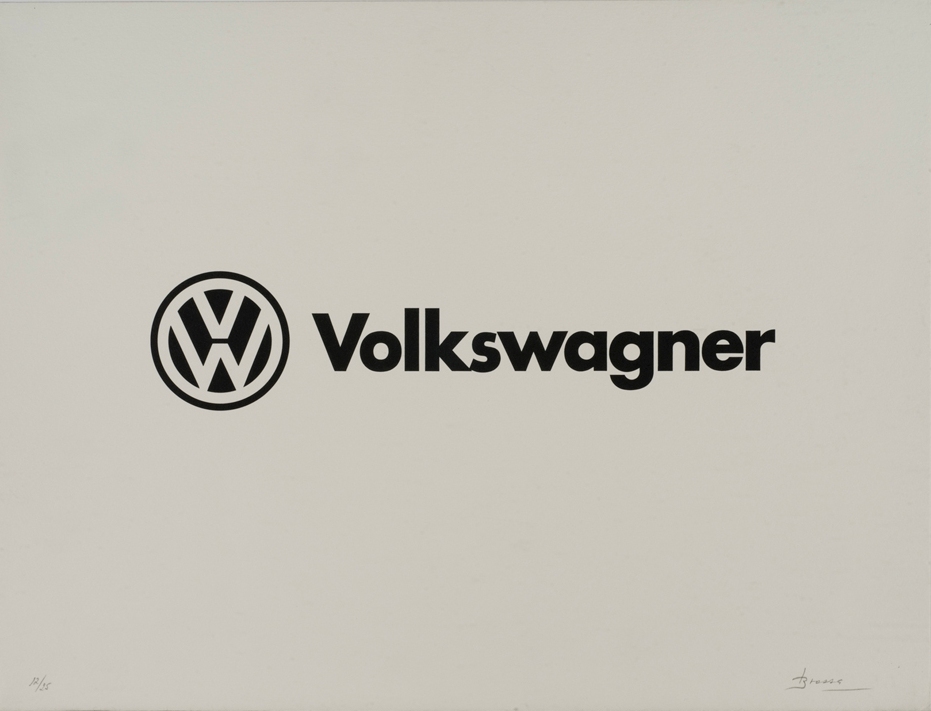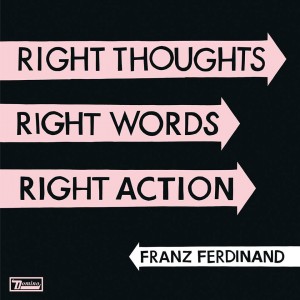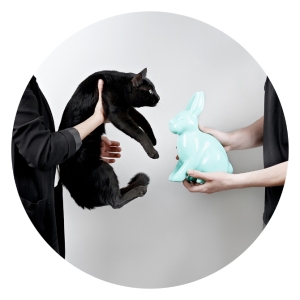Fent surf entre els meus blogs favorits, vaig trobar amagada aquesta petita joia, 101 Ways to get the best out of ràdio advertising, un article que és bo del tot. Redactors, directors creatius, caps de producció, experts en mitjans, planificadors estratègics i directors de màrqueting ens ofereixen des de la seva experiència consells pràctics per treure el màxim profit a la publicitat radiofònica

Il·lustració d’Ethan Murrow
Feia temps que volia escriure un article sobre la redacció publicitària aplicada a la ràdio, però després de llegir el document que us he presentat em vaig adonar que no caldria perquè ja algú altre l’havia escrit per mi. Així que el que he fet és seleccionar aquells consells que m’han semblat més útils per a qualsevol redactor que ha d’escriure un guió i participar en el procés de la seva producció. Els he deixat en anglès, per mandra -no ho nego- però sobretot per no desvirtuar-ne el significat amb una mala traducció:
Tot gran anunci de ràdio comença amb un redactor. The best scripts always come from writers that have a passion for words –not just a love for writing. You can’t produce a brilliant ad without a brilliant script.
Escriu amb tota la informació necessària. Ensure you know, work with, and write the script around the mandatory requirements from the client, from the beginning.These include any URLs, payoff lines and product details. You don’t want to find yourself having to cut a vital piece of the dialogue down to fit in some special offer at the end.
Trenca amb allò establert. Always think of interesting ways of breaking the usual structure of a radio ad. Encourage yourself to break the usual gag-and-tag setup of telling a story or joke, then tagging on the announcer with brand/product payoff lines at the end.
Pensa en imatges. You’ve heard the expression ‘a picture is worth a thousand words’, but a few words can paint a very clear picture. You don’t necessarily need 1000. One of the biggest criticisms of radio is that it’s not visual enough. (…) Think and write in pictures. In that way, the spot can be visualized by the audience. It makes a stronger impression, which ultimately means fewer repeats are required to get your message across.
Sense pietat. Be very careful with timing. Sometimes you have to be very ruthless in what you have to cut to make the 30” time limit. Rather have a good comfortably-timed dialogue, than something that’s crammed and rushed. Never underestimate the power of an ‘awkward silence’.
Cronometra el teu guió abans de vendre’l. It’s completely unprofessional to start cutting copy in a session and it’s almost always detrimental to the final spot. Time your scripts before you sell them to your client as 30” spots and then find you cannot deliver on this. Copywriters have a tendency to write scripts that help sell the idea to client, and then don’t alter it before going into studio. Suddenly a 30 second script takes 45 seconds to read and then you have to do some quick editing, phone the client (if they aren’t there) and it becomes a struggle.
Simplicitat: claredat, concisió, brevetat, precisió. Clarify your message. Research shows that listeners misunderstand a lot of – if not most – communication. Don’t force your voice over artist to speak too fast. People better understand a simply worded and simply presented message.
No et confiïs. Somebody owns everything. Make sure you research the rights of any material before you sell your script to the client. This will avoid unnecessary trauma when you find out that the whistle from that big movie is actually owned and you can’t use it -and it was what your client loved about the script to begin with!
Deixa que el text respiri. Read your script in front of other people. When you do this, you become more aware of the necessary pauses that are required to give a script the space to breathe.
Deixa el teu guió en bones mans. Identify the production house that you feel is best for the particular script and invest adequate time into voice selection and crafting. Make sure your script is in the hands of a brilliant audio engineer. They are the unsung heroes but play a huge role in bringing the concept to life.
Fes que s’impliquin els que més en saben. Get your producers, creative director, and the production house involved. Send scripts to the sound editor, get him to suggest voiceovers and effects. After all, these guys work with artists every day. They know good voices!
Responsabilitzat de la teva feina. Be sure to have your most recent scripts with you. Make this your responsibility. If everyone else has the script without the changes that were approved the afternoon before, it can waste valuable recording time.
Tingues cura de tots els detalls. You can never be too nit-picky in the studio. If you think the voice-over artist is not pronouncing the ‘p’ strongly enough in the second line, let them know. Take pride in every detail of your work.
Escolta. Ideas can come from anyone and anywhere. Be open to ideas from the client or voice artist. Be willing to adapt. Sometimes the voice over artist, the client, your art director or the sound editor come up with better ways to say something. A new word here, cut a word there. Don’t be afraid to listen to everyone involved. It will make the spot that much better.
Però tu tens el comandament. Remember! You are in charge. You wrote the script. You know what you want it to sound like. You sold it to client. If you don’t like a suggestion, say so. Don’t be pushed over by overzealous account managers or clients. After all, it goes down as your work.
Tanca els ulls. Radio is theatre of the mind and one of the best ways of gauging whether your ad will make an impact is to simply close your eyes during the session and see what picture comes to your mind as you listen.
Ningú va dir que seria fàcil. What looks and sounds good as a script will sometimes not translate into a good radio ad. Don’t be disillusioned. Writing for radio is a difficult discipline to master.
 Qualsevol peça o campanya publicitària s’assembla a un iceberg: la gent només acostuma a veure’n una part, el resultat final, però no s’adona del que hi ha sota la superfície, és a dir, tota la feinada que s’ha hagut de fer al llarg del procés previ. Pel que fa a la participació del redactor, succeeix el mateix: és lògic que els lectors o els oïdors de qualsevol anunci es fixin només en el missatge textual i ignorin que el redactor fa molt més que escriure els textos, funció que li és pròpia, el defineix i, en principi, no és sotmesa a discussió. Què fa o pot fer, doncs, el redactor, més enllà de l’elaboració dels missatges textuals de les accions o campanyes publicitàries? Se m’acut això:
Qualsevol peça o campanya publicitària s’assembla a un iceberg: la gent només acostuma a veure’n una part, el resultat final, però no s’adona del que hi ha sota la superfície, és a dir, tota la feinada que s’ha hagut de fer al llarg del procés previ. Pel que fa a la participació del redactor, succeeix el mateix: és lògic que els lectors o els oïdors de qualsevol anunci es fixin només en el missatge textual i ignorin que el redactor fa molt més que escriure els textos, funció que li és pròpia, el defineix i, en principi, no és sotmesa a discussió. Què fa o pot fer, doncs, el redactor, més enllà de l’elaboració dels missatges textuals de les accions o campanyes publicitàries? Se m’acut això:








